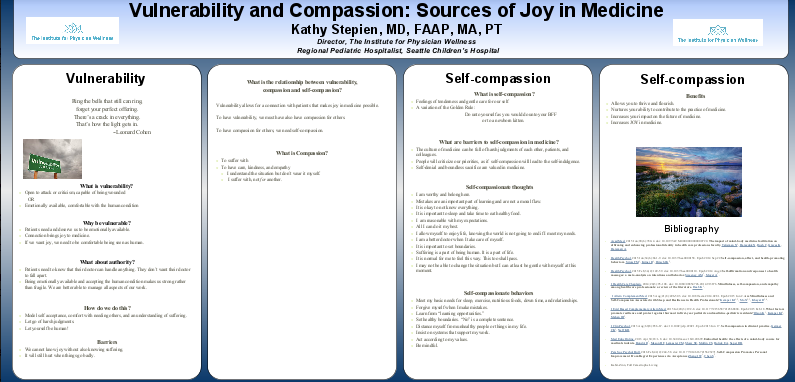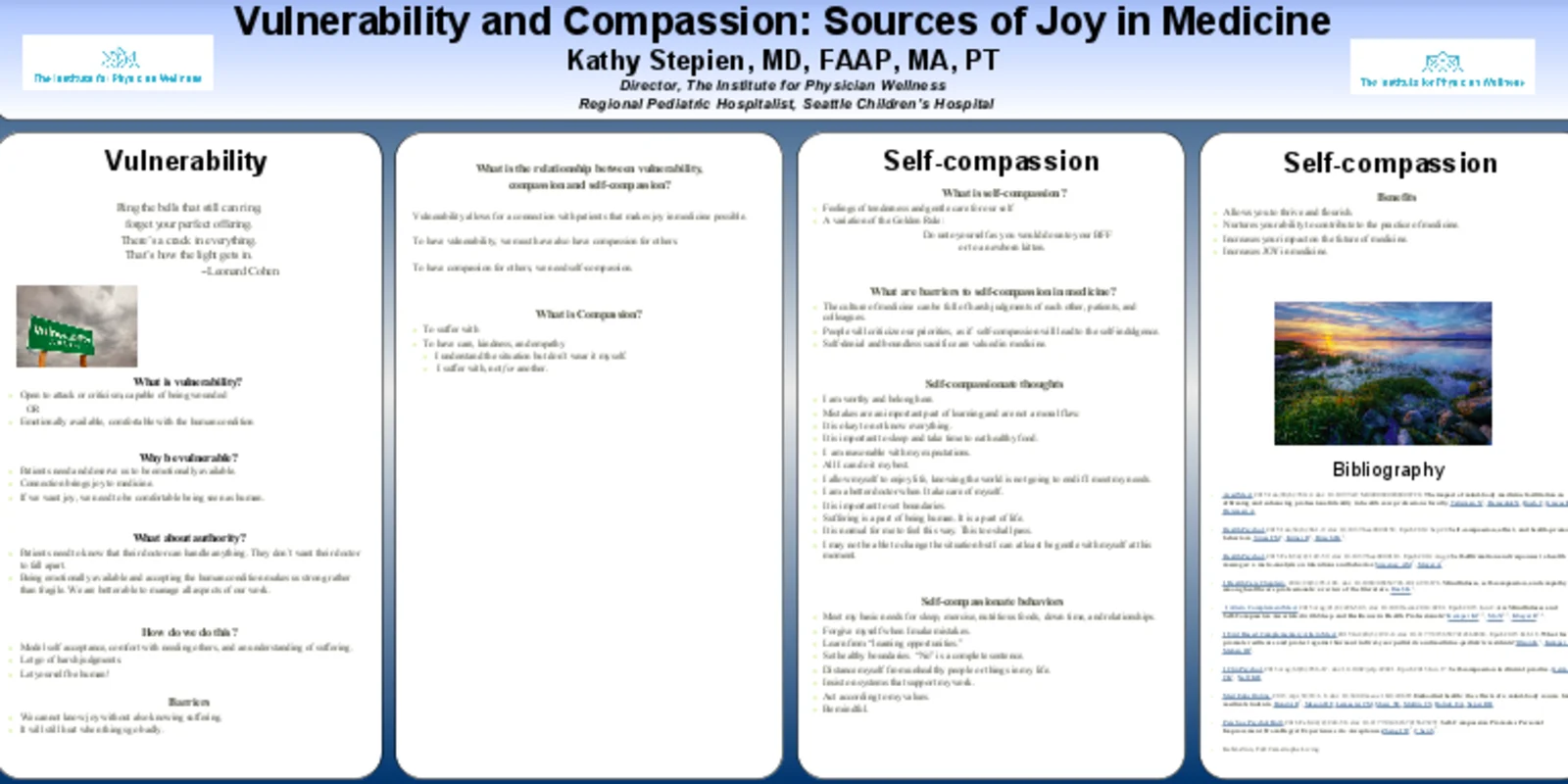
Vulnerability is often thought of in the negative sense — to be open to attack or criticism and therefore capable of being wounded. I invite you to also look at its positive side — to be emotionally available and comfortable with the human condition.
Why talk about vulnerability let alone bother with it during our busy days in medicine? Because that’s where the sparkle happens. As Leonard Cohen reminds us “There’s a crack in everything. That’s how the light gets it.” Patients need and deserve us to be emotionally available. Vulnerability allows us to connect with our patients. If we want joy in medicine, we need to be comfortable with being seen as human.
Worried about your sense of authority if you show vulnerability? Patients need to know we can handle anything. They need to know we won’t fall part. Being vulnerable makes us stronger than fragile. We are then able to better handle all aspects of our work. For at least one day, can we all just try to model self-acceptance, comfort with needing others, and an understanding of suffering?
Vulnerability allows for a connection with patients that lets joy in medicine possible. To have vulnerability, we must also have compassion. To have compassion for others, we must also have self-compassion.
Differing from empathy, compassion is about doing. Compassion is about action. Treating others how we might want to be treated is an act of compassion. What about self-compassion? That can be thought of as a variation of the Golden Rule: Do unto yourself as you would do unto your BFF or a new kitten. Tenderness, patience, unwavering support…we could use more of that in medicine.
Examples of self-compassionate thoughts:
- I am worthy and belong here.
- Mistakes are an important part of learning and are not a moral flaw.
It is okay to not know everything.
It is important to sleep and take time to eat healthy food.
I am reasonable with my expectations.
All I can do is my best.
I allow myself to enjoy life, knowing the world is not going to end if I meet my needs.
I am a better doctor when I take care of myself.
It is important to set boundaries.
Suffering is a part of being human. It is a part of life.
It is normal for me to feel this way. This too shall pass.
I may not be able to change the situation but I can at least be gentle with myself at this moment.
Examples of self-compassionate behaviors:
Meet my basic needs for sleep, exercise, nutritious foods, down time, and relationships.
Forgive myself when I make mistakes.
Learn from “learning opportunities.”
Set healthy boundaries. “No” is a complete sentence.
Distance myself from unhealthy people or things in my life.
Insist on systems that support my work.
Act according to my values.
Practice being mindful, present and aware in this moment.
Vulnerability, compassion and self-compassion can be abstract thoughts and feel like just one more thing to pile onto our heavy schedules. But also consider that they allow you to thrive and flourish. They nurture your ability to contribute and increase joy in medicine.







